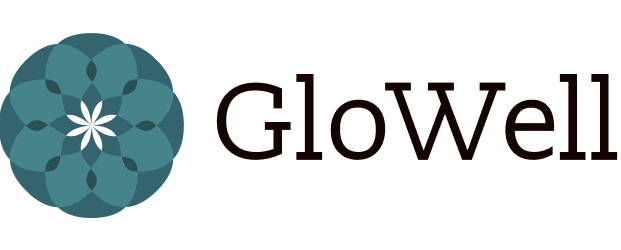Everyone wants to succeed. It’s our human condition to want more and better. We are built to crave growth and evolution.
But most of us aren’t very good at it.
We spend an exorbitant amount of time making grand plans for our lives and then suffering frustration and embarrassment when we can’t seem to get it right.
That’s because most of us rely on willpower to get where we want to go. We think it’s enough just to want the kind of positive behavioral change and healthy lifestyle habits that will propel us toward the life we dream of.
And when it doesn’t hold up to our expectations, we spiral into a pool of depression and self-doubt, thinking we have no control over our own destiny.
Not true.
We’ve just been pushing the wrong buttons.
Willpower? More Like Won’t Power
Willpower gets too much credit if you ask me. I can’t tell you how many mornings I woke up during my many mid-college and postpartum weight loss attempts and promised myself I’d be strong today. Today I won’t eat this or that [insert whatever macronutrient my latest fad diet had denounced as the devil].
I’d start strong at breakfast, but by dinnertime, all bets were off. Sugar cravings, an extra glass of wine…whatever. I’ll start again tomorrow.
Tomorrow I will beat this thing.
And on it went.
This wasn’t just a diet thing. When I wanted to cut back on wine, it was the same story, and it was no different when it came to getting into a habit of riding my bike or doing yoga regularly. Or even cleaning the house and monitoring my finances.
Yeah, I know I sound like a hot mess.
And the truth is I was for a long time. I knew I had so much more potential inside me than my behavior would indicate. I just couldn’t figure out how to harness it.
Some days were better than others, but for the most part, willpower alone was never enough to inspire lasting change.
From the outside, it would seem I had no desire to stick to my plans. Inside I was devastated and felt weak because I couldn’t make my actions match my intentions.
I really wanted these things, I swear!
Why Willpower Doesn’t Work
Years went by on that same rollercoaster. All my best-laid plans would flail and die at the end of a tough day or when a special occasion came along and derailed me.
I blamed my willpower, and by my late 20’s I was starting to feel as though I might be fundamentally broken somehow.
Luckily, I was working as a wellness writer by that point and came across some research that made me feel much better about myself. Researchers claimed that willpower is limited, and we all run out toward the end of the day.
I was all about adopting this mantra as a means to justify my apparent lack of conviction.
“Hallelujah! It’s not just me,” I cheered.
Of course, this new revelation did nothing to help me drop the 50 pregnancy pounds I’d been carrying around for nearly five years. But at least I could blame my lack of personal improvement on my innate human condition rather than a character deficit.
This would have been a convenient way to live, blaming my biology, except that it turns out…
The initial reports on willpower were wrong.
Belief Beats Willpower Every Time
Not long after I was handed the expired-willpower-excuse, it was rudely snatched away when neuroscientists announced they were wrong. The real reason people fail isn’t due to piddly willpower reserves; it’s because people believe they will run out of willpower.
It turns out believing you have unlimited willpower is enough to make it true.
What does that mean in the great scheme of life and change?
Our ability to resist a craving or follow through on a plan has less to do with our desire to succeed than with our belief about our ability to succeed.
This isn’t shocking if you consider that our willpower is generated from the same place in our minds our desires live—in our deliberate, rational, conscious mind, which makes up less than 10% of our entire brain’s operating powers.
So, where does the other 90% of our brain’s strength originate from?
Our subconscious.
More than 90% of our mind’s power comes from the subconscious realm. That’s also where our creativity, intuition, and —you guessed it—beliefs reside.
Beliefs are so much more powerful than desires.
They’re attached to the value systems that help us determine what’s right and wrong, good and bad, safe and unsafe…you know, the basic survival stuff.
And because our subconscious is mostly operating out of our conscious view, we aren’t really sure most of the time how our beliefs are affecting our actions.
When Beliefs Become Limiting
This is great news if we harbor core beliefs that support our conscious desires.
If my programming indicates I’m worthy of love and respect, I’ll be more likely to find a loving partner and enjoy a fulfilling relationship.
If your brain truly believes from its depths you are worthy of love, it will move heaven and earth to create a reality that reinforces that truth. Your subconscious thoughts will become actions that support that belief, and your reality will reflect the fact that you are loved.
If, on the other hand, you picked up a belief in childhood or your early teen years that you aren’t loveable, most of your brain’s power (whether you realize it or not) will work to align your physical reality with that “truth.”
This is when our core beliefs become self-limiting.
When our core beliefs are in direct opposition to our conscious desires, we will lose every time.
So, forget about willpower and focus on uncovering the root of your beliefs. Work to reprogram beliefs that aren’t serving you and get your subconscious agenda aligned with your conscious desires. That’s the easiest way to harness your brainpower and manifest the life you deserve.
But how does someone go from believing they are unloveable to truly knowing without a doubt they are perfectly and wholly loveable just as they are?
How do we reprogram our self-limiting beliefs and get our subconscious to work for us?
You gotta get your whole brain integrated into the same boat.
The Effortless Power of Belief
The power of belief cannot be understated. It’s the difference between banging your head against a wall and floating through life on a cloud.
When you truly believe something, your whole brain and body collaborate to perpetuate your view of the world.
If you truly believe you’re perfect and loveable just as you are and that your body is intelligently designed to know exactly the right foods to put in it…that maintaining an ideal weight is a natural state for you, guess what?
Your brain is going to make damn sure it isn’t made into a liar.
You’ll subconsciously choose different foods and move your body more. Your attitude around food, movement, and your body will be more positive and grateful, raising your vibration and attracting more of the same goodness.
When your core beliefs are in service of your conscious desires, you don’t need willpower because you’ve got something far more powerful.
Getting Your Beliefs & Desires on the Same Program
The fact that our core beliefs live just outside our conscious attention makes them a little tricky to access, but it’s not impossible. And even if you have a whole lifetime of programming reinforcing a belief, you can change it.
Our subconscious is actually not that hard to get in touch with. We can access it through various intentional and unintentional avenues. It opens up anytime we drift into a trance or hypnotic state and during certain phases of the sleep cycle.
People have been using hypnotherapy for years to dig into their subconscious and finetune deeply held attitudes and perspectives. Hypnotherapists help patients relax until their brain waves change to a Theta state, and then their subconscious is available for reprogramming.
Meditation is a good way to get your brain into a relaxed and receptive state. Anything that shifts your brain waves from Alpha and Beta (typical awake states) to Theta (trance).
Sometimes we don’t even need to work to get into a trance state.
Have you ever been driving and realized you don’t remember the last five miles of your trip and just missed your exit? Or read the same paragraph on your computer three times but still can’t get the information to stick?
This is what it feels like when our bodies enter a trance state. It happens several times a day when a dip in our ultradian rhythm (a waking part of our circadian rhythms) shifts our brain waves into a Theta (resting) state, putting us in a trance—leaving our subconscious exposed.
One of my favorite ways to get access to your subconscious is through a combination of self-hypnosis and non-dominant handwriting technique that involves a back-and-forth journaling. You write out a question to yourself with your dominant hand, and then switch your pen or pencil to your non-dominant hand to let your subconscious mind answer. This helps you speak directly to your subconscious and negotiate the rewiring of your core beliefs.
Meditation, hypnotherapy, and non-dominant journaling are just a few ways to dig down and create positive change in our lives. Whichever way you lean, remember that your willpower will only take you so far.
So quit feeling bad about your afternoon chocolate binges and start looking at the root of what’s driving them. Change your deep-rooted beliefs, and you can change your life.













Join the GloWell Community on Social!
Don't risk missing a single thing. Follow us on social and become part of the GloWell community.